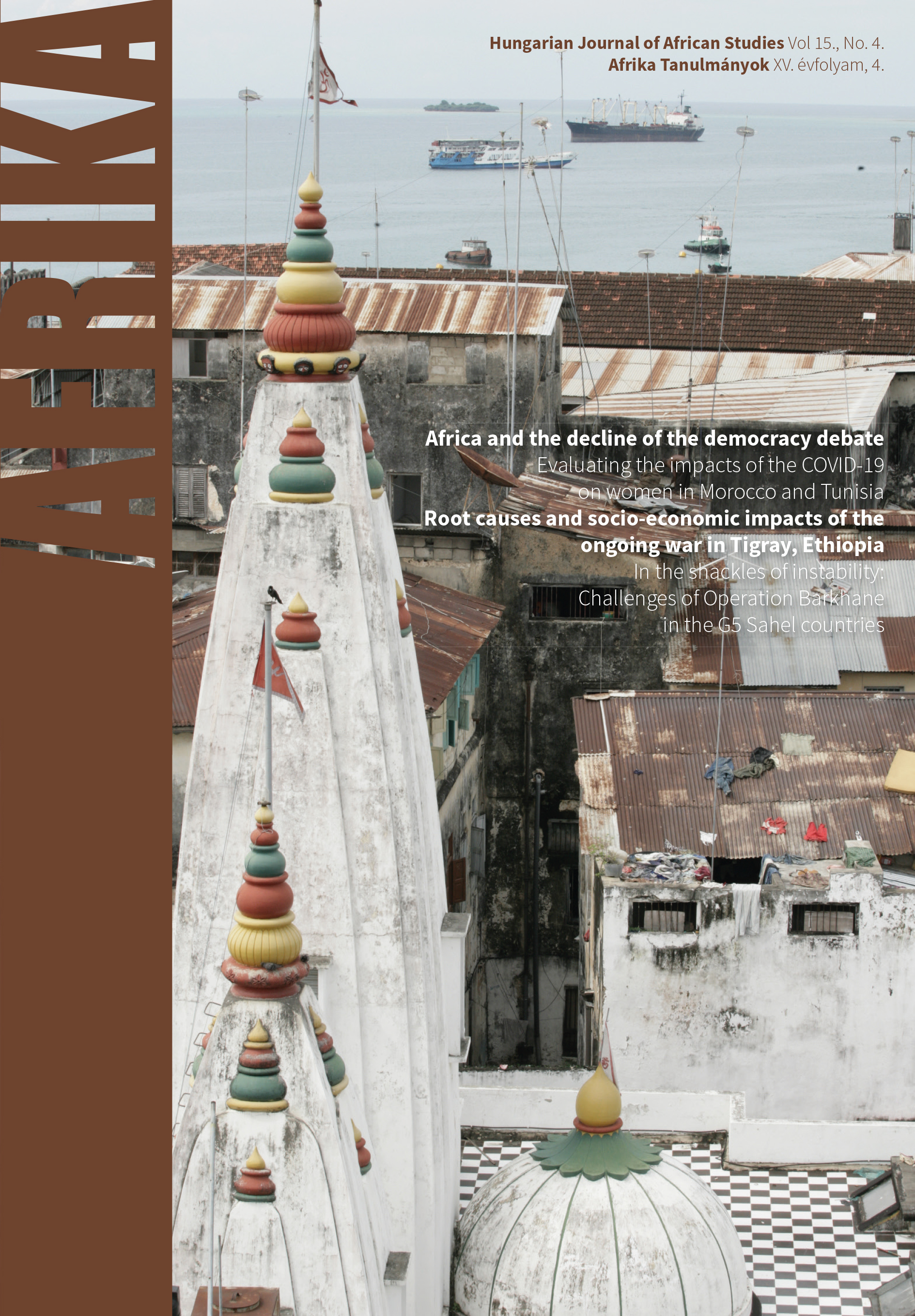Root Causes and the Socio-Economic Impact of the Ongoing War Between the TPLF and the Federal Government of Ethiopia (2 November 2020 – 15 October 2021)
DOI:
https://doi.org/10.15170/AT.2021.15.4.3Kulcsszavak:
TPLF, EPRDF, Tigray, Amhara, Afar, war/law enforcement, Ethiopian economyAbsztrakt
Abiy Ahmed, the current premier and Nobel Peace Prize winner in 2019, is the third prime minister to lead Ethiopia since the overthrow of Derg. Although he had high approval ratings at the beginning of his administration across the country including Tigray, the premier has lost the trust of the TPLF, and most of its leaders have left the capital Addis to settle in Mekelle. This situation increased tension between TPLF and the federal government, which resulted in the ongoing war. This research aims at identifying the main causes of the ongoing conflict in Ethiopia and its socio-economic consequences, utilizing informal methods of data collection and phone interviews. In addition, observations, assessment, and informal communications with members of the Ethiopian and Tigray defence forces were also included in the data collection. The root cause of this war was a matter of gaining power in the federal government. As a consequence of this conflict, people in the Tigray region and some parts of the Afar and Amhara regions have been suffering for several months. Hundreds of thousands of people displaced from western Tigray to Sudan and central Tigray and war zones in Afar and Amhara are currently searching for safety. The people of Tigray have not had electricity, banking services, and internet access for many months. In the past two months, some parts of the Amhara and Afar regions have also been similarly affected. The economy of the country has been impacted in many sectors including tourism. The military tanks, cars, and aircraft that were destroyed in the war were resources for the country. Most importantly, the country is losing its work force while fighting in the war with many fatalities. The war has also had a psychological impact on community due to rapes and robberies. The other key finding is that most of the people are rather spending their time with arguing on who is responsible for the current war instead of focusing on the development of the economy. In conclusion, this war broke out due to a few politicians seeking power, which negatively impacted the livelihood of Ethiopian citizens and country’s economy. As there is nothing more important than peace for the country and its people, it is recommended that politicians should sit down to work out their differences.
Downloads
Megjelent
Hogyan kell idézni
Folyóirat szám
Rovat
License

This work is licensed under a Creative Commons Attribution-NonCommercial-NoDerivatives 4.0 International License.
















